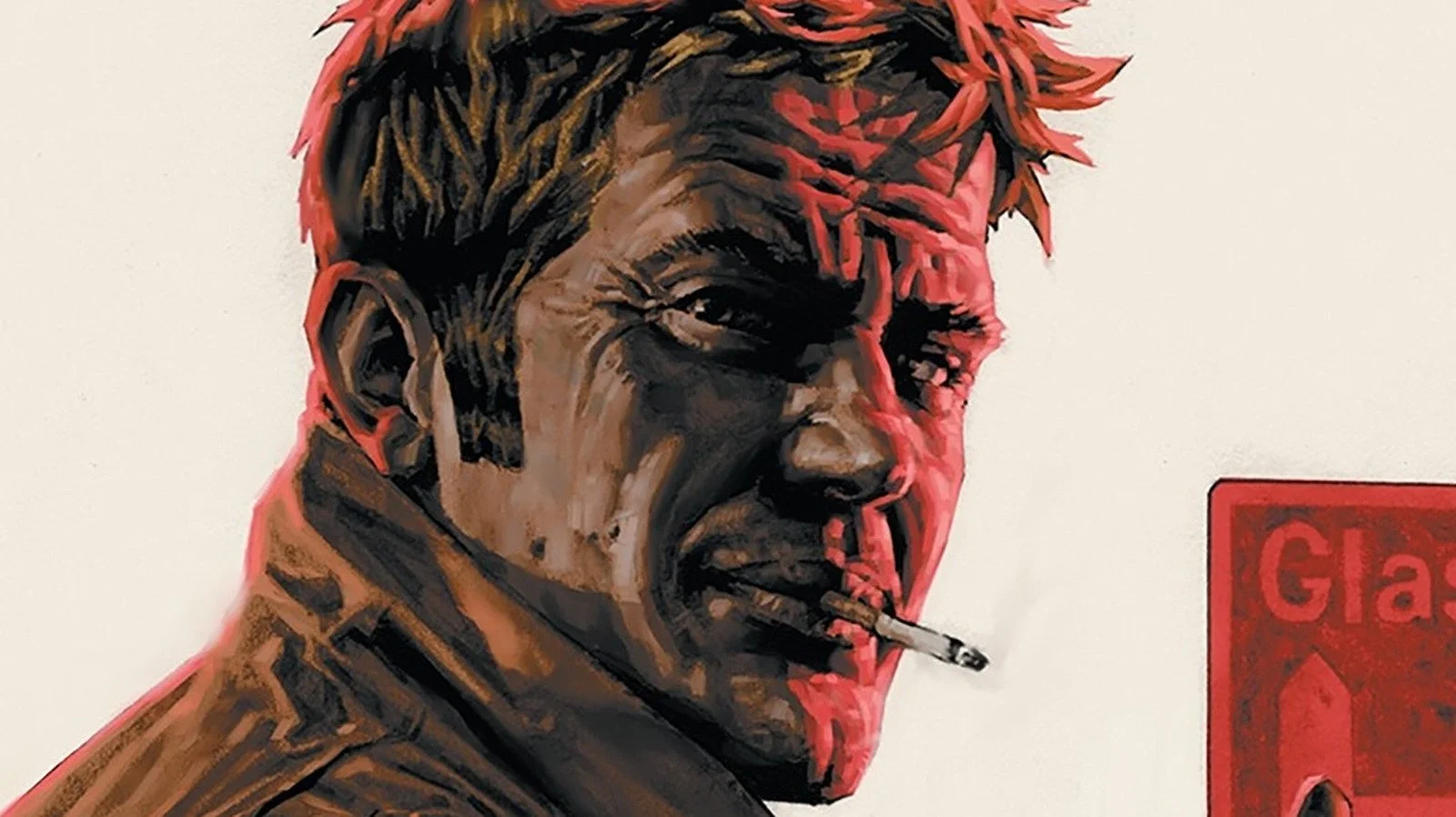We look at the one constant(ine) in an ever changing universe of DC Comics’ mature books.
Buy DC Comics here and support The Comic Crush.
We never really knew you at all.
29th January 2020
A couple of weeks back, we saw the final tweet from the Vertigo Comics account. They thanked us for following them on their strange adventure. It had been an adventure, at times strange and (for those of us that jumped on at the beginning) sometimes very heady. It also struck me as a little sad that the final words from the imprint that screamed so loudly from the comic's pulpit in the late eighties / early nineties were on a platform that is often filled with people screaming into the echo chamber of their own values. Vertigo challenged values – everyone's values - and helped usher in some of modern comics' most indelible creations. Doom Patrol had its most challenging and interesting period under the stewardship of Rachel Pollack, the books' previous writer, Grant Morrison would create The Invisibles, an intellectually challenging comic of ideas that prepared the world for the pop-noir techno-combat and philosophical underpinnings of The Matrix. Neil Gaiman continued the journey of a Golden-Age character (the Sandman) and re-fashioned it like a lucid dream into an epic tale about the price of our subconscious fantasies. And of course, Liverpool's least favourite son would stay haunted by the friends he'd killed along the way.
It's hard now to quantify the impact that Vertigo had on my reading back then. I was new to comics, or at least new to making my own decisions about what I was spending money on. I'd been deep into comics since about the age of six, graduating from Beano and The Dandy to 2000 A.D., so I was somewhat prepped for the vicious satire of Vertigo. But it was around age eleven when I started picking out my own comics every week. By the time I was a teenager, the hook was in. And Vertigo was definite bait. The pages of a Vertigo comic looked different. The inks bled differently, and the colours swirled in different ways. Strange things happened. not just in the pages of Vertigo books but outside them, as if opening a Vertigo book somehow unleashed a parasite in your head that worked on you, even when you weren't reading it. Suggested for Mature Readers ran the strap-line on the comics. Maybe what it should have said is 'these books work spells'. They were, quite simply, a kind of magic.
What Vertigo books gave you the World not just as it was, but with the skin peeled back, showing the hidden workings underneath. Even when they flirted with the fantastic. There was a punk-like, criminal undercurrent to the storylines in those pages, no matter how weird it got. Even the characters that started life as plain old DC books seemed to take on new life and meaning under the Vertigo banner. Animal Man, The Doom Patrol, Swamp Thing and John Constantine all took on new lives when the Vertigo sting arrived on their books. Or maybe it's better to say that they became what they were always meant to become. They were working-class folk (like Constantine), who didn't want to be heroes and quite often weren't. They were people like us, confused, angry and scared. Experimenting with life, with drugs, sex, violence. Learning who they were. It was so good, it couldn't possibly last. And it wouldn't. Vertigo's powers would wax and wane as time went on. The spell faded.
That's not to say the comics it shepherded in the later years were bad. It's more the ideas didn't chime the same way with the audience. It's almost a natural selection process in fiction. Every publisher goes through this. Vertigo would be resuscitated a few times yet, and the imprint itself would also sire several other imprints – Vertigo Pop!, V2K, Vertigo Versions... these were short-lived but widened the comics-reading experience during their lifespan. But as the years went on and Vertigo's remit shifted to more fantasy and sci-fi (as the market demanded), their characters shifted, especially Constantine, who moved from Vertigo back to DC (via the New 52) and then onward to Rebirth. This of course meant that some of the more introspective and rougher edges would have to go. There was a sense of corporate predictability about this. If DC could take complex, adult characters that began life in the standard DC stable and move them into the darker arena that Vertigo operated in, there was no reason to assume they couldn't somehow reverse that magic and put some of these characters back into the universe where they started. This seemed to be the beginning of the end of Vertigo. Slowly, the imprint itself would suffer from editorial shifts and uncertainty. The herald of bad times to come. Constantine's shifts from imprint to the main label seemed to be a metaphor for the changes that Vertigo was going through. Vertigo finally reached its end shortly after one of its flagship line of titles, Sandman was resurrected into a new 'universe' of contained titles, many of them the same inter-connected supernatural-tinged creations that kick-started Vertigo in the first place. Only the shifty, trench-coated magician was missing from the line-up.
That was, until, Si Spurrier and Aaron Campbell were announced as the new creative team of Constantine's return. Only Vertigo wouldn't make it back with him. At least not in name. DC had already begun publishing a new line of books, Black Label, featuring a more adult attitude and tone. Starting with flagship characters (Batman, Superman, Wonder Woman), Black Label is now re-introducing characters that wouldn't be out of place in Vertigo's line-up. The Question, more realistic versions of Harley Quinn and The Joker. And the Sandman Universe rolls on, with talents like Spurrier, Dan Watters and new voices like Nalo Hopkinson as well as artists like Campbell, Tom Fowler and the Fiumara Brothers. And of course, there's the fact that the very first Black Label book featured none other than John Constantine as a supporting character, meaning that once again the fate of the label and its star seem linked. So I guess it's goodnight Vertigo and goodbye Constantine, but hello Hellblazer. Proof positive that you can't keep good characters down. Even if they're a nasty piece of work, chief. Ask anybody.

